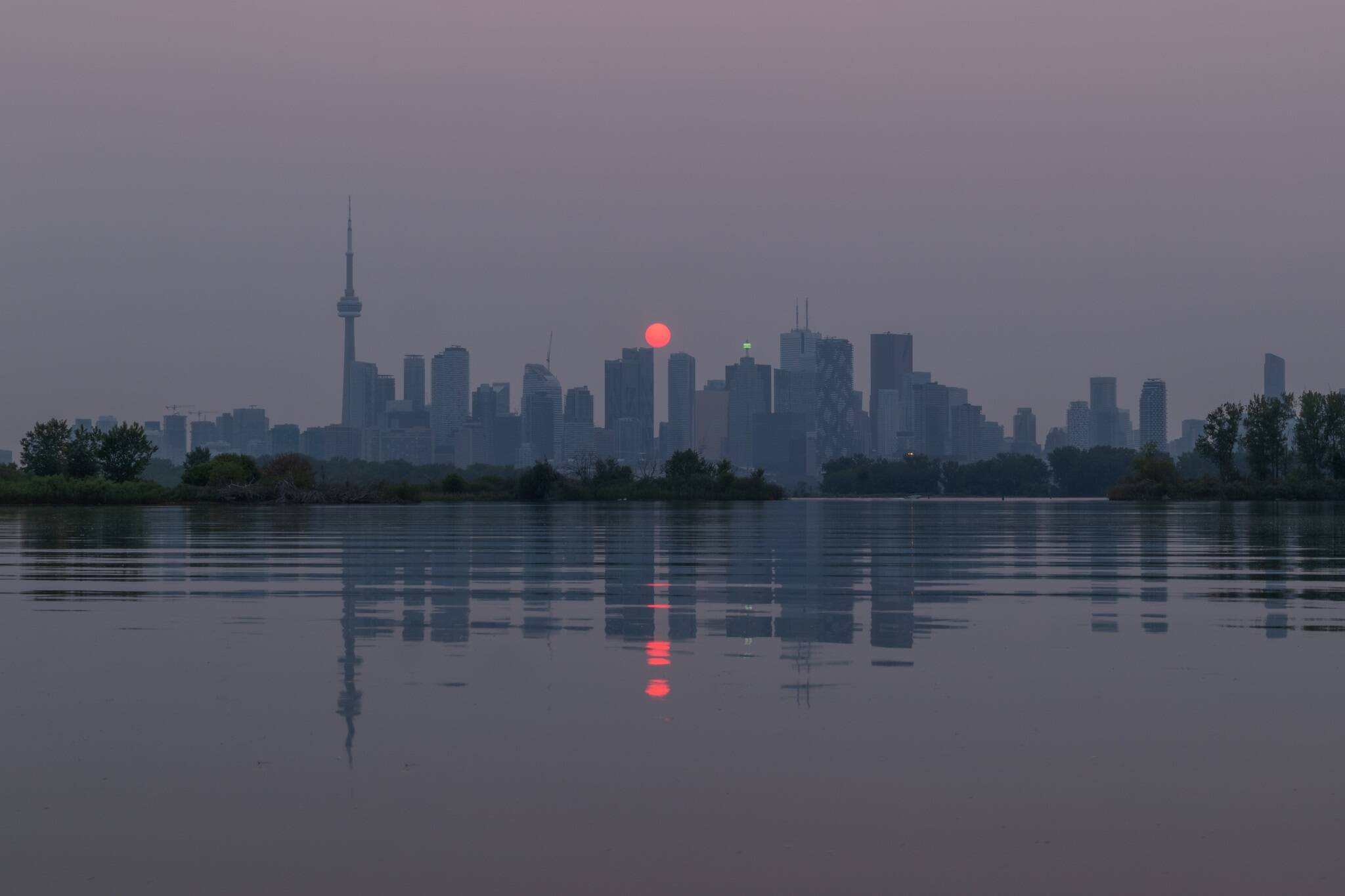
Toronto can expect to be choked out with wildfire smoke again this summer
Ontario's 2024 forest fire season officially began on April 1, and while no fires are actively burning in the province as of this week, experts are sounding the alarm that Toronto could be choked out by wildfire smoke this summer in a potentially worse repeat of the lung-burning season experienced last year.
In an interview with CBC, Blair Feltmate, head of the Intact Centre on Climate Adaptation at the University of Waterloo, told the outlet that Toronto can expect more of the same conditions experienced last summer, saying, "we've got conditions that are right to make a wildfire risk."
With forecasts calling for above-average temperatures across the country in May and June, experts are sounding the alarm that blazes could be more widespread this spring and summer.
Feltmate told the CBC that the public needs to "prepare for these extreme events," in future summers as these widespread blazes become less of an anomaly.
Following Toronto's experiences with wildfire smoke in 2023, the City has published a Wildfire Smoke Response Strategy offering information on the detrimental health effects of forest fire smoke, as well as tips on how to best prepare for what will likely be another summer of orange-hued skies and air quality warnings.
A giant dong-shaped smoke cloud is exposing itself over Toronto https://t.co/ae4Vs0paja #Toronto
— blogTO (@blogTO) June 8, 2023
"Due to climate change, wildfires have become an increasingly significant concern worldwide, causing a widespread impact on ecosystems, communities, and public health," the City page reads, adding that "the effects of wildfires extend beyond the immediate vicinity of the fire, as smoke can travel long distances, impacting air quality in distant regions."
"In June 2023, Toronto experienced the consequences of wildfire smoke on its air quality, which can affect the health of the population, especially for people who are vulnerable and disproportionately impacted by poor air quality. In response to these unprecedented air quality impacts, Toronto Public Health has prepared this initial Wildfire Smoke Response Strategy."
Air quality plummets as blanket of wildfire smoke covers Toronto https://t.co/ig30Ce451J #Toronto
— blogTO (@blogTO) June 28, 2023
The response strategy page offers insights into how the public can use tools like the Quality Health Index and monitor Special Air Quality Statements to protect themselves from harmful air quality, along with ways to reduce exposure to wildfire smoke.
The public can keep track of active fires burning in Ontario using an interactive map managed by provincial fire officials.
Hpsens/Shutterstock
Latest Videos
Latest Videos
Join the conversation Load comments







